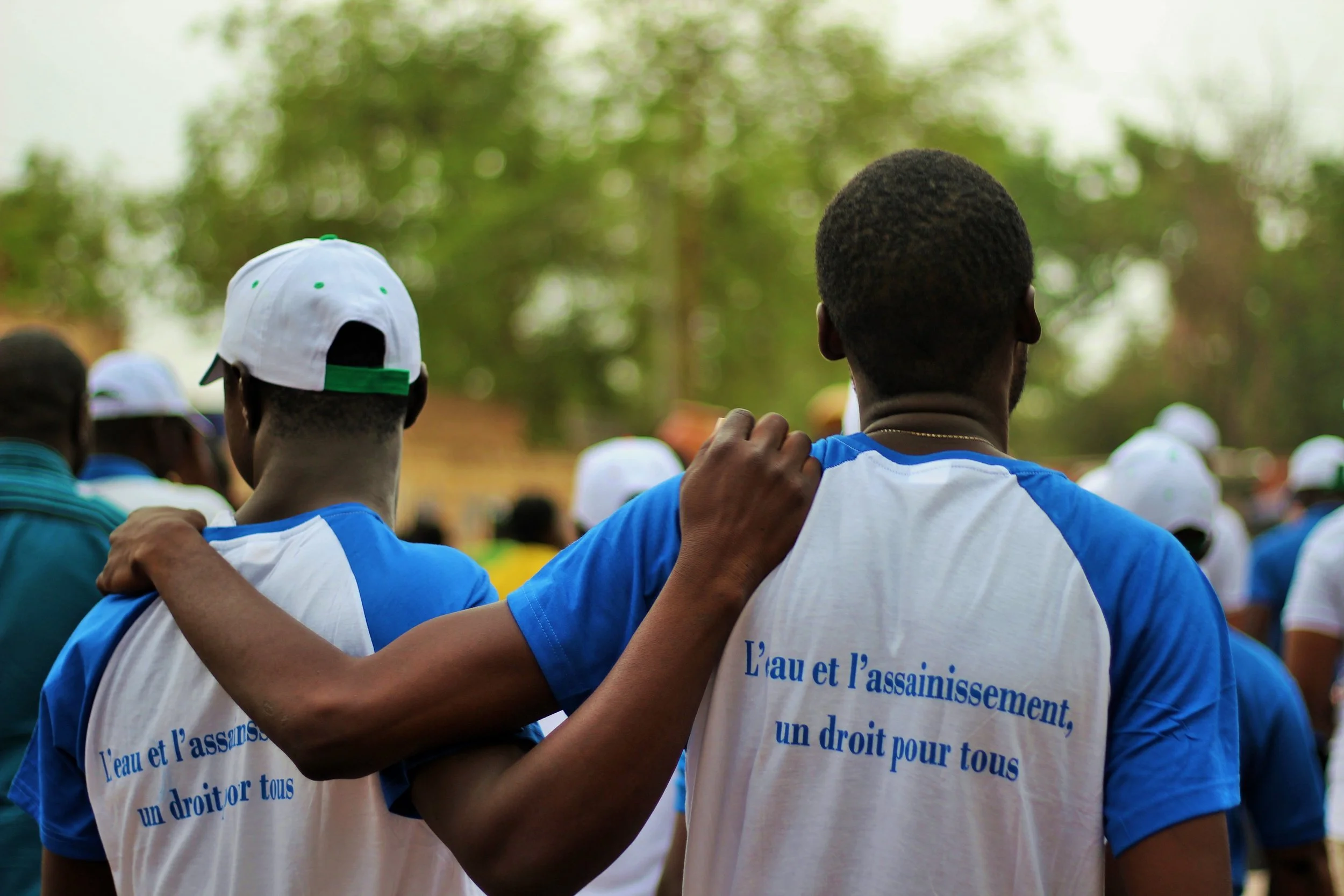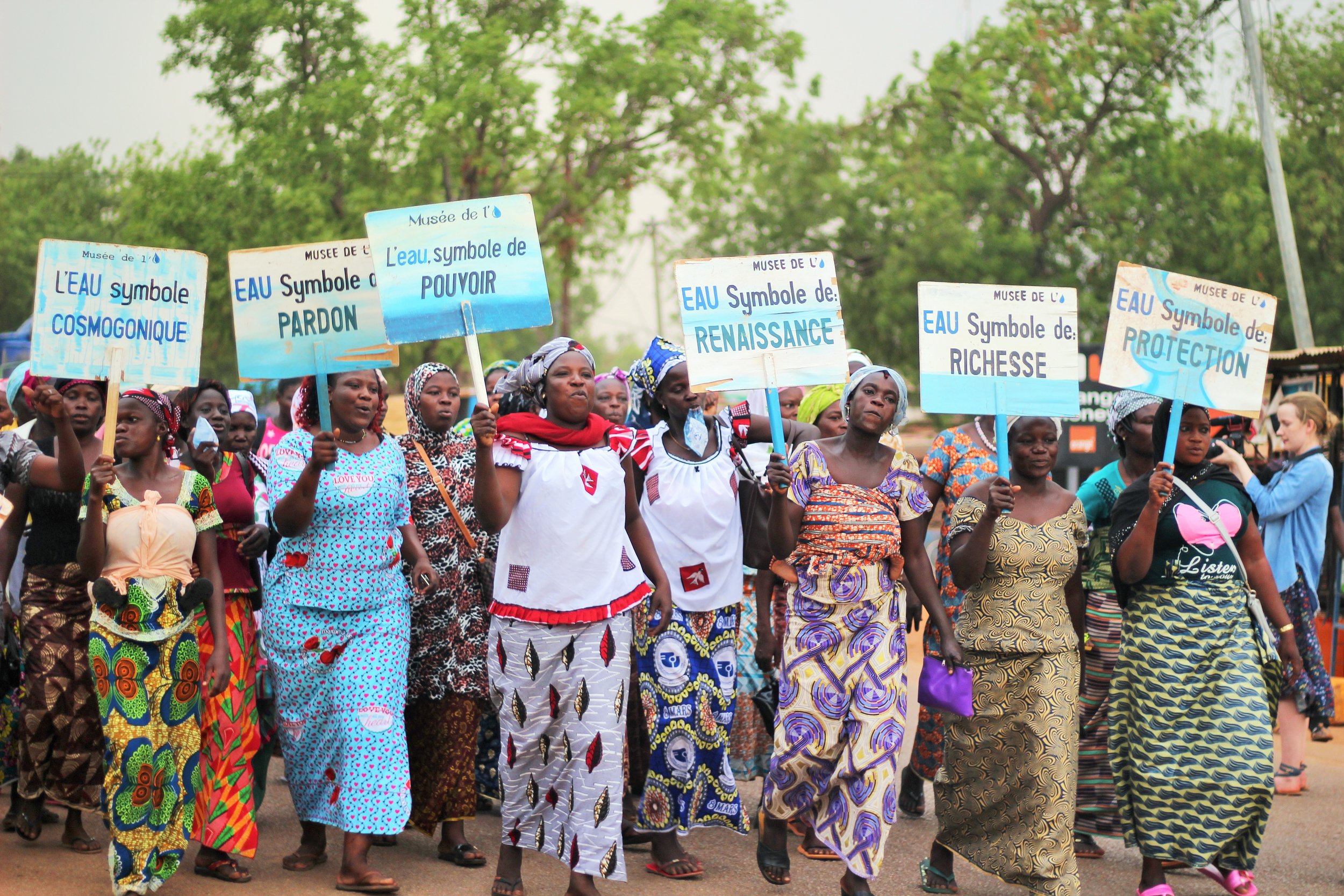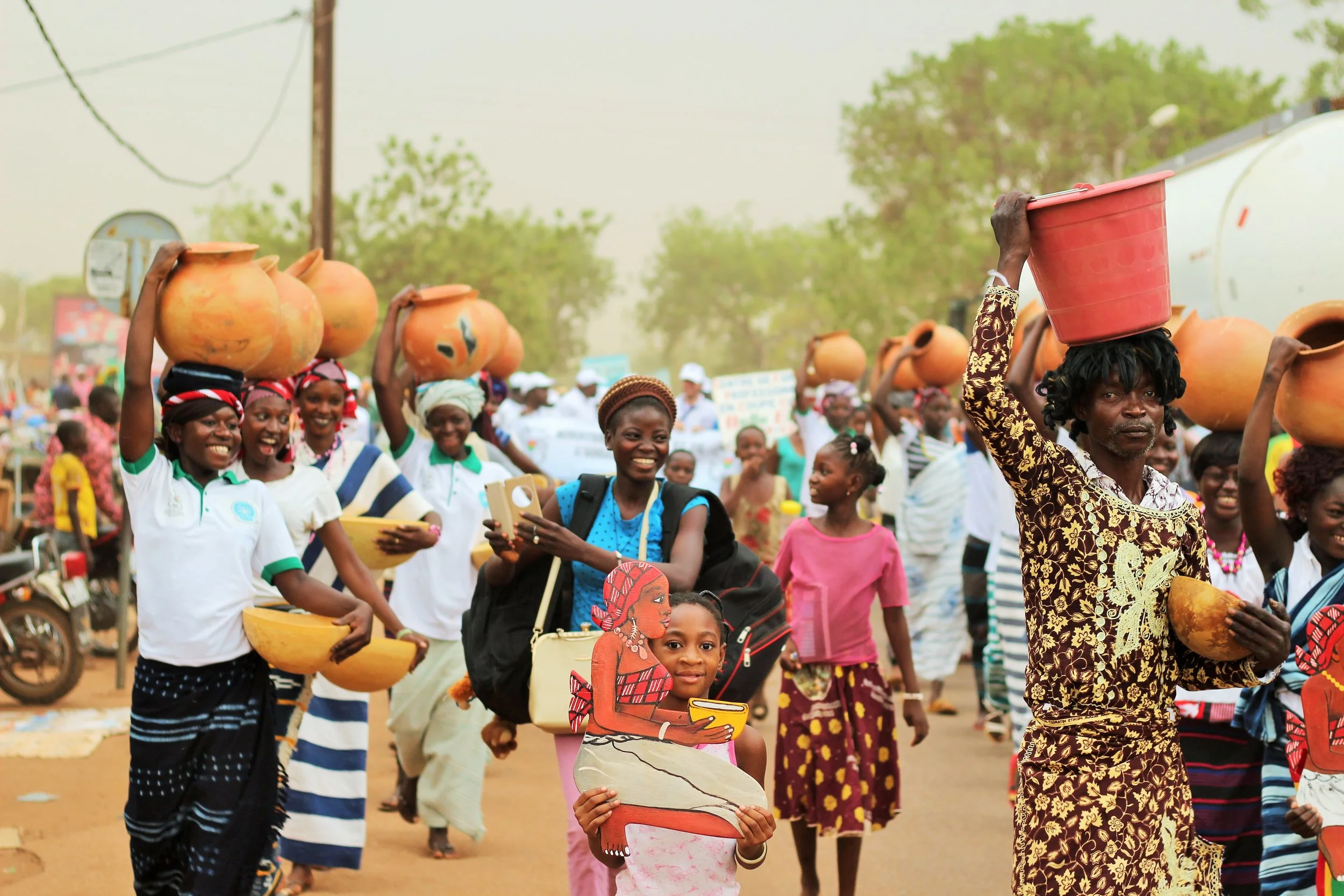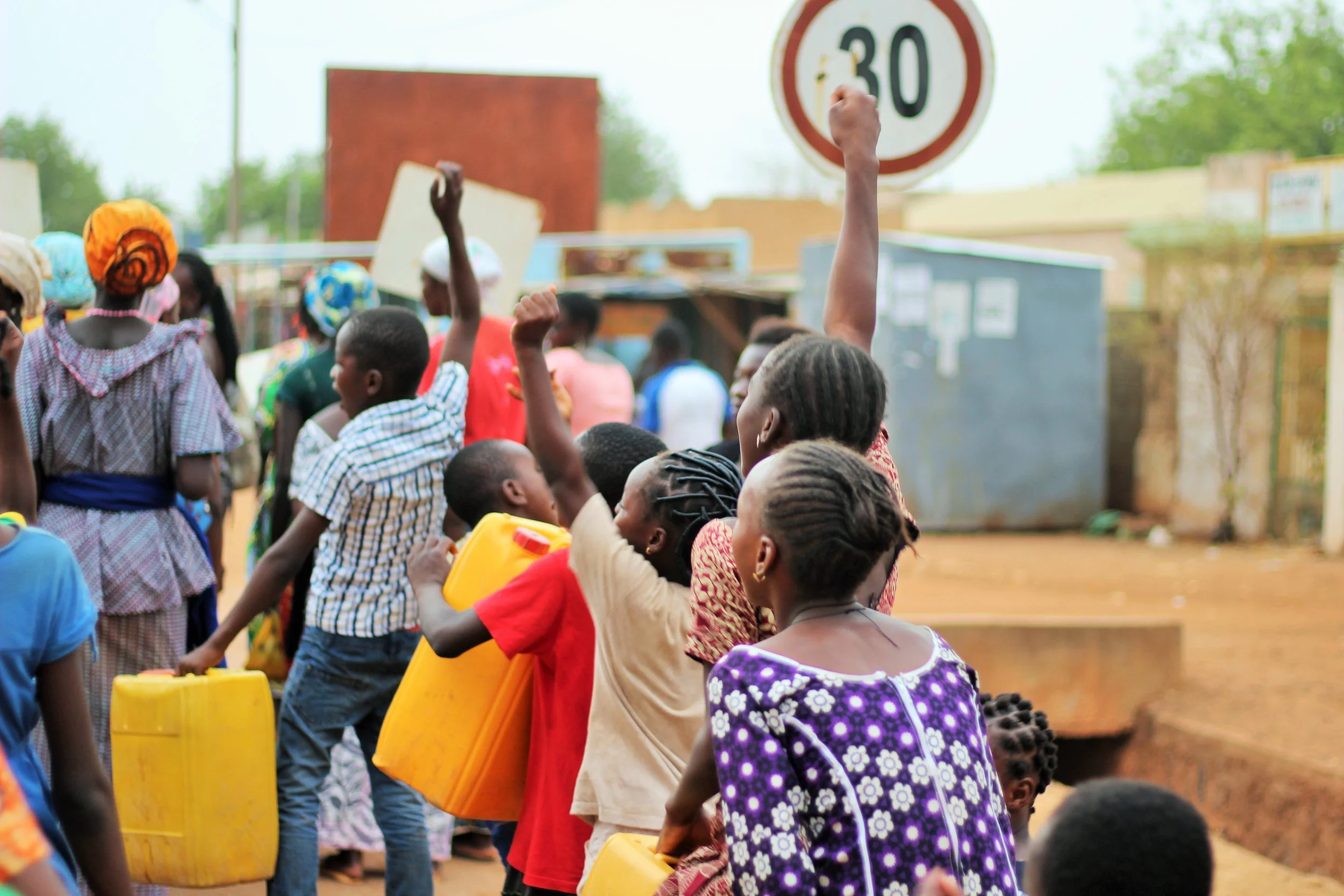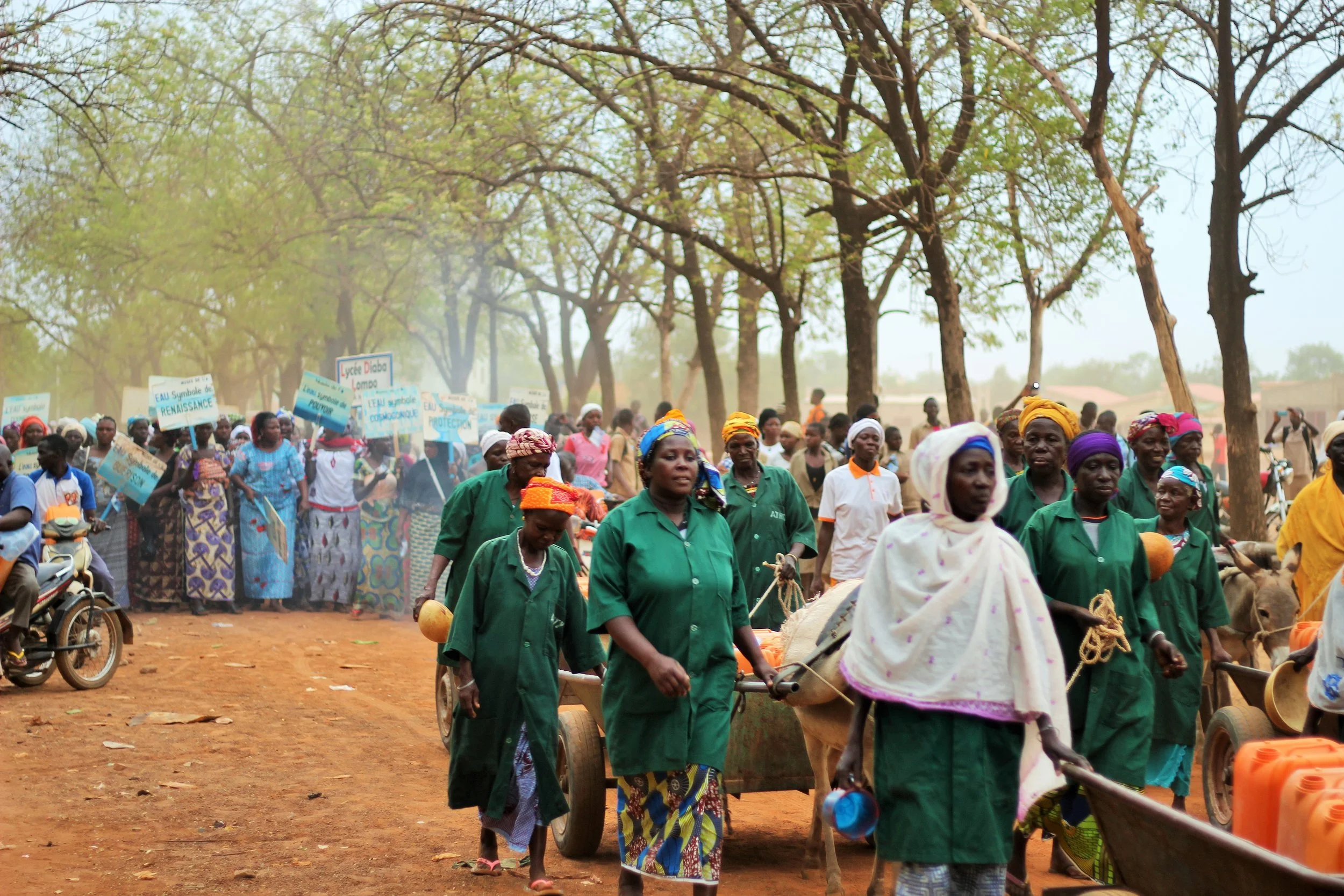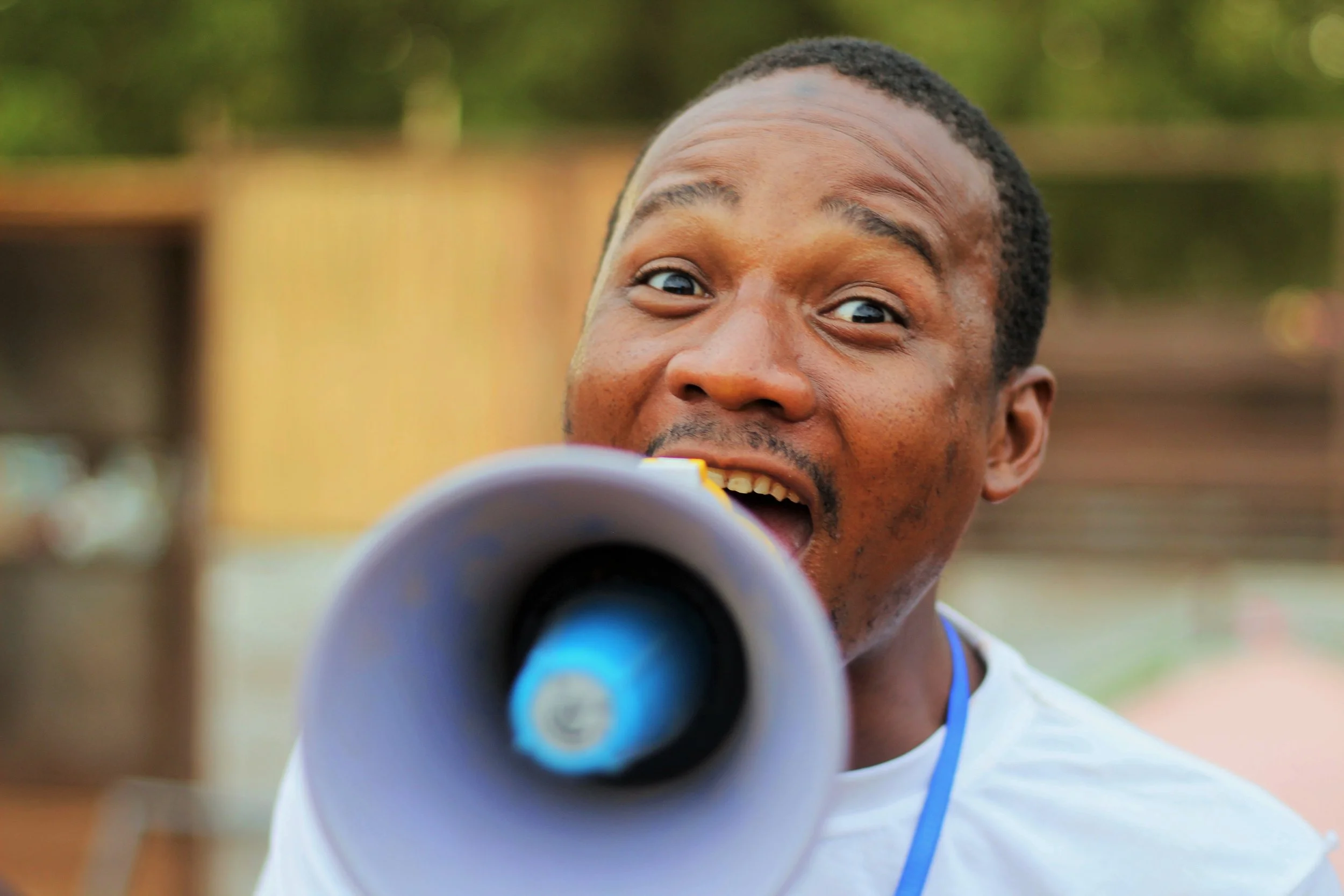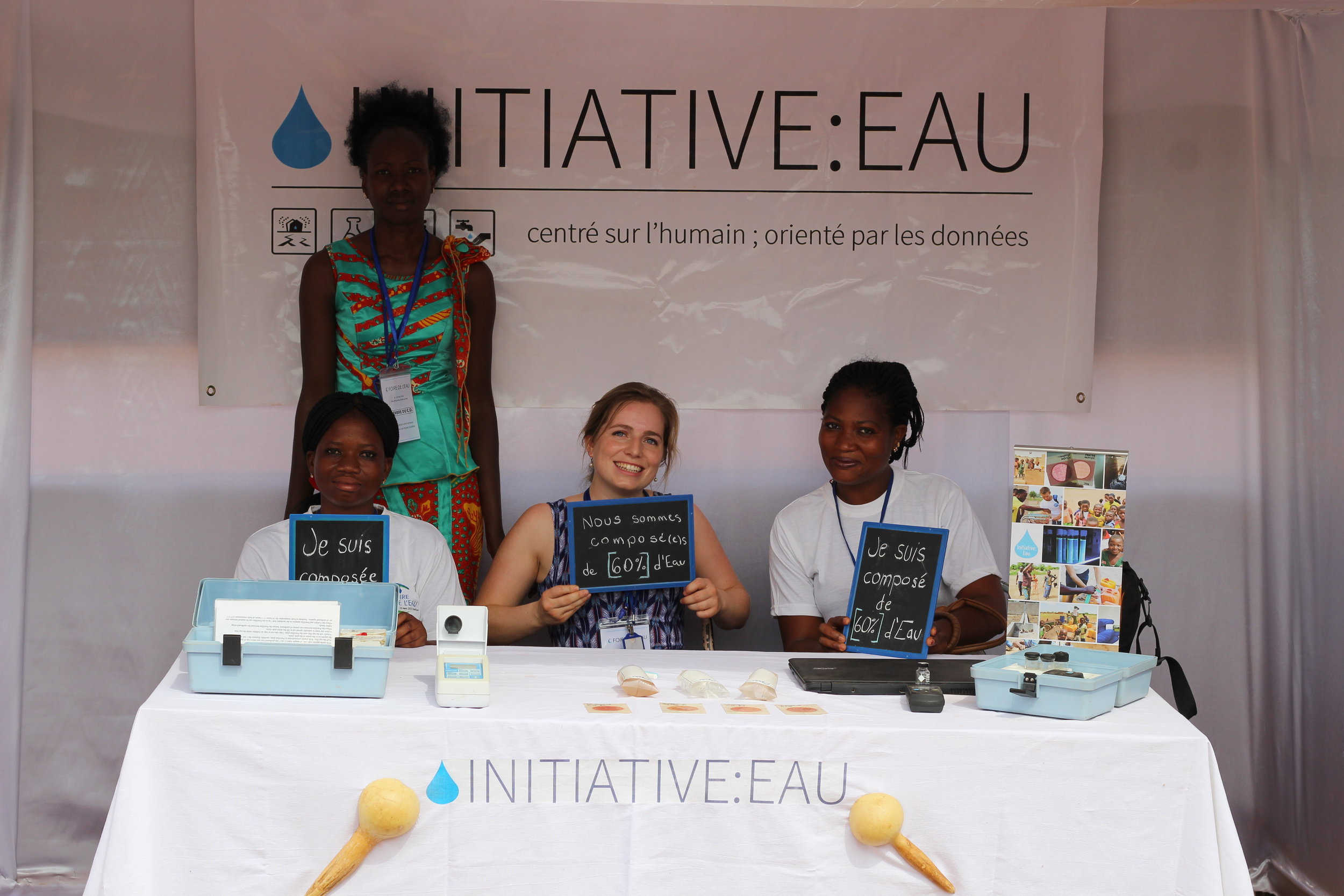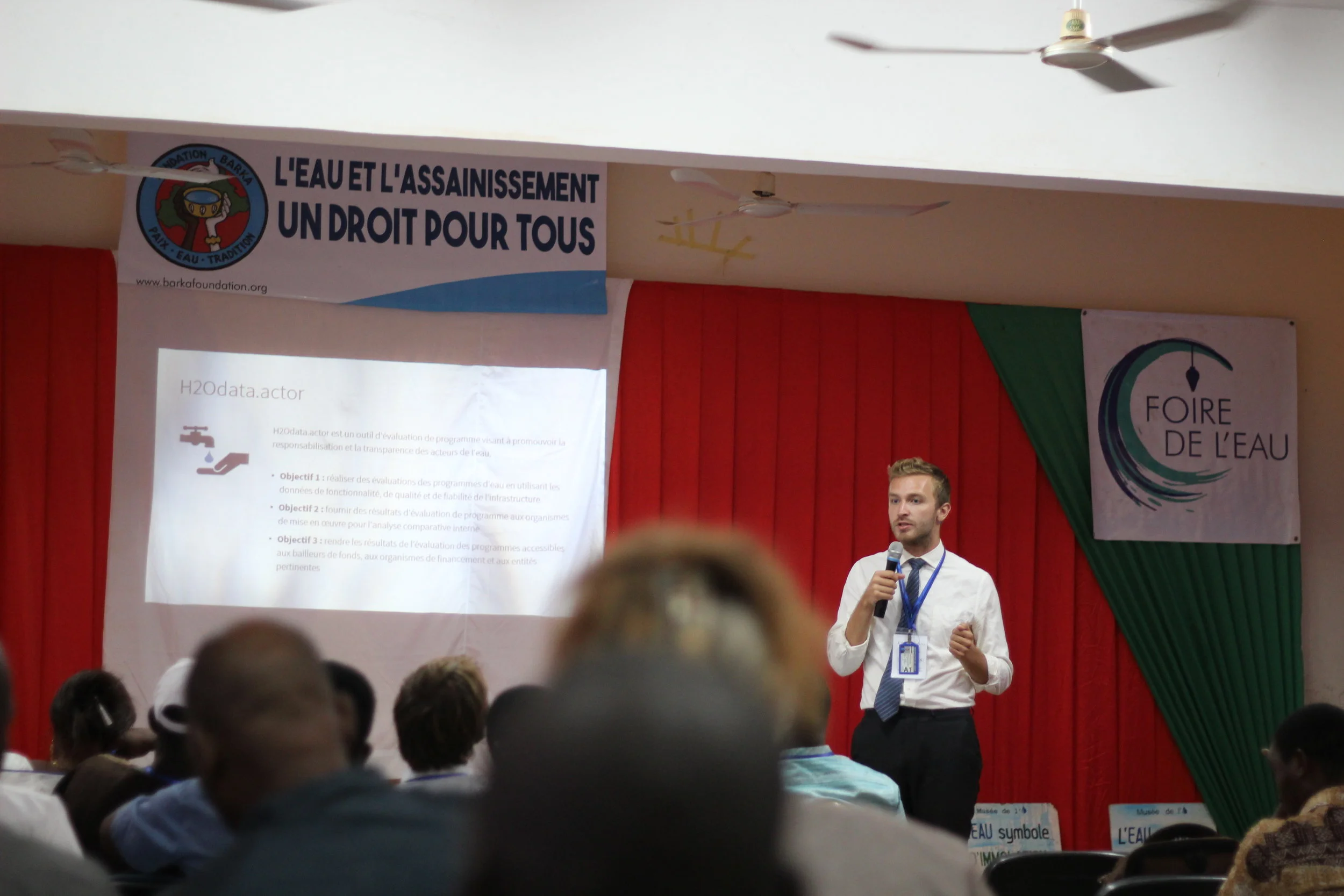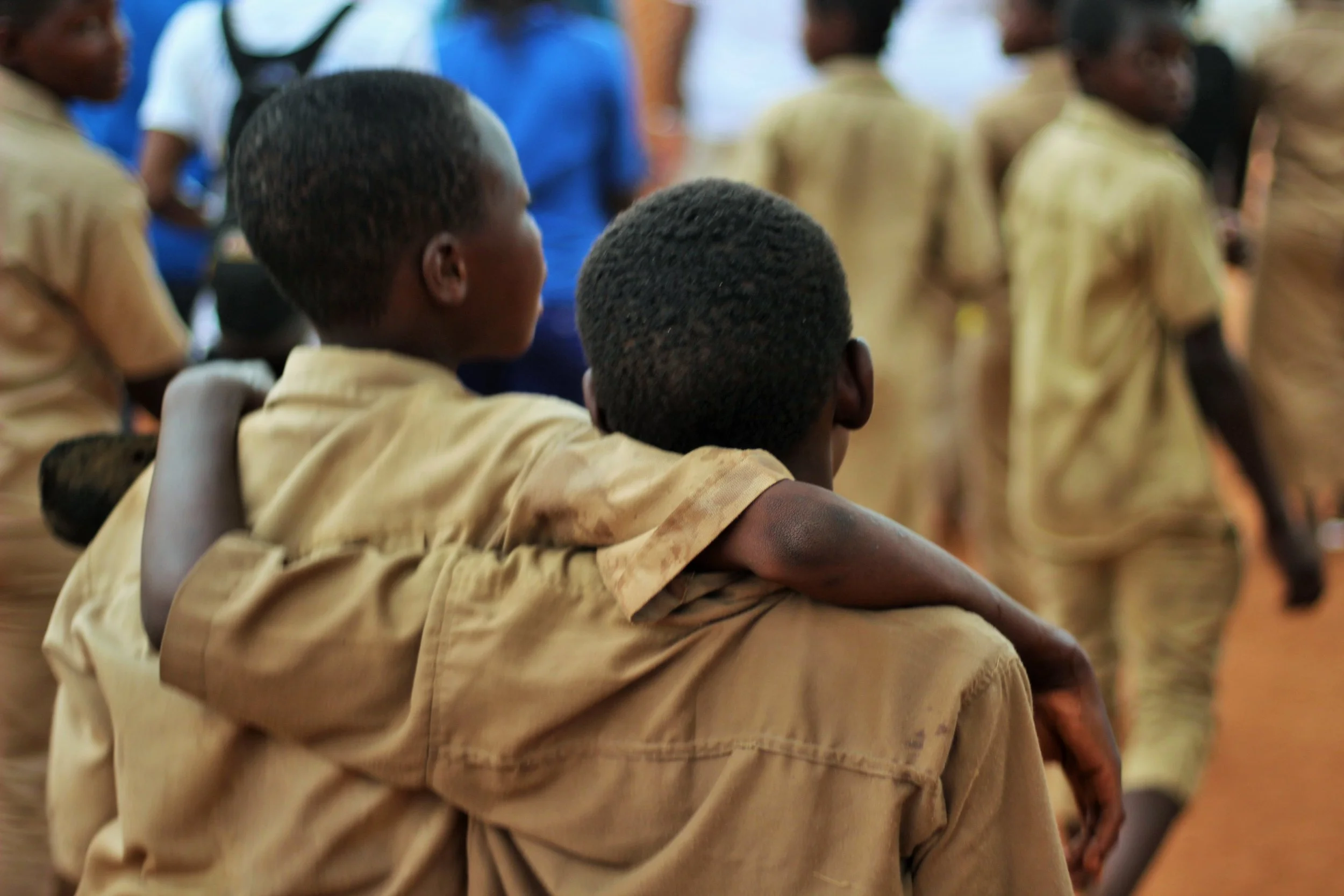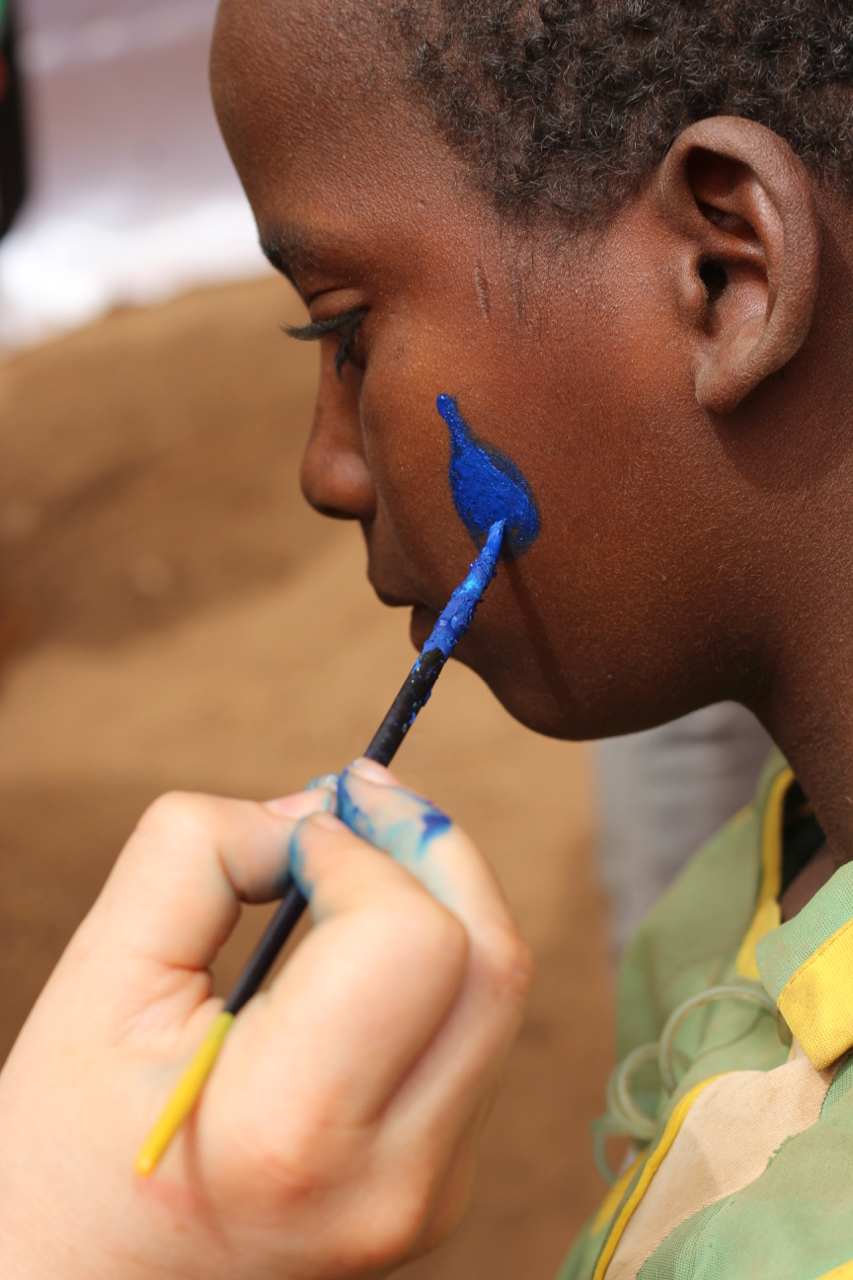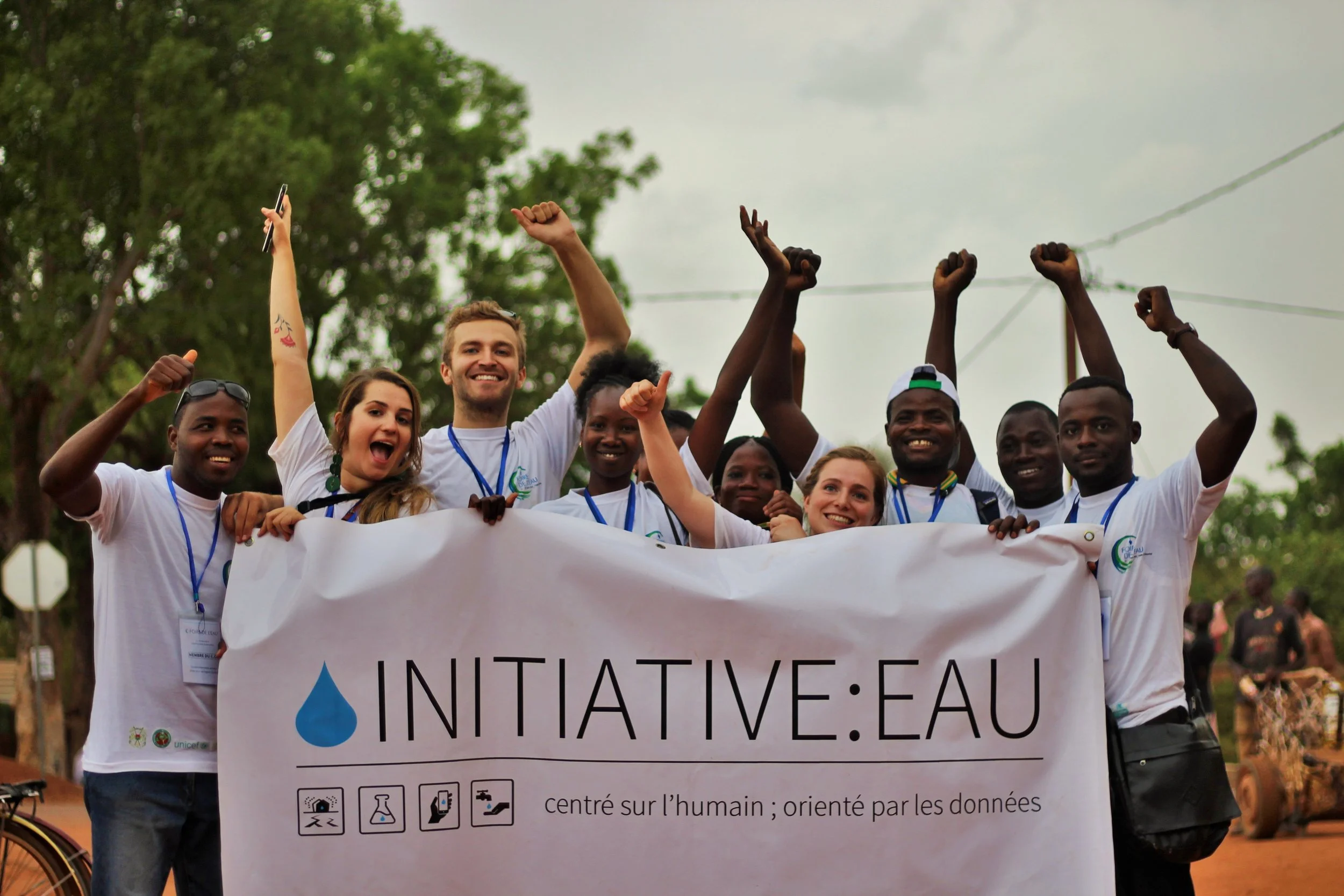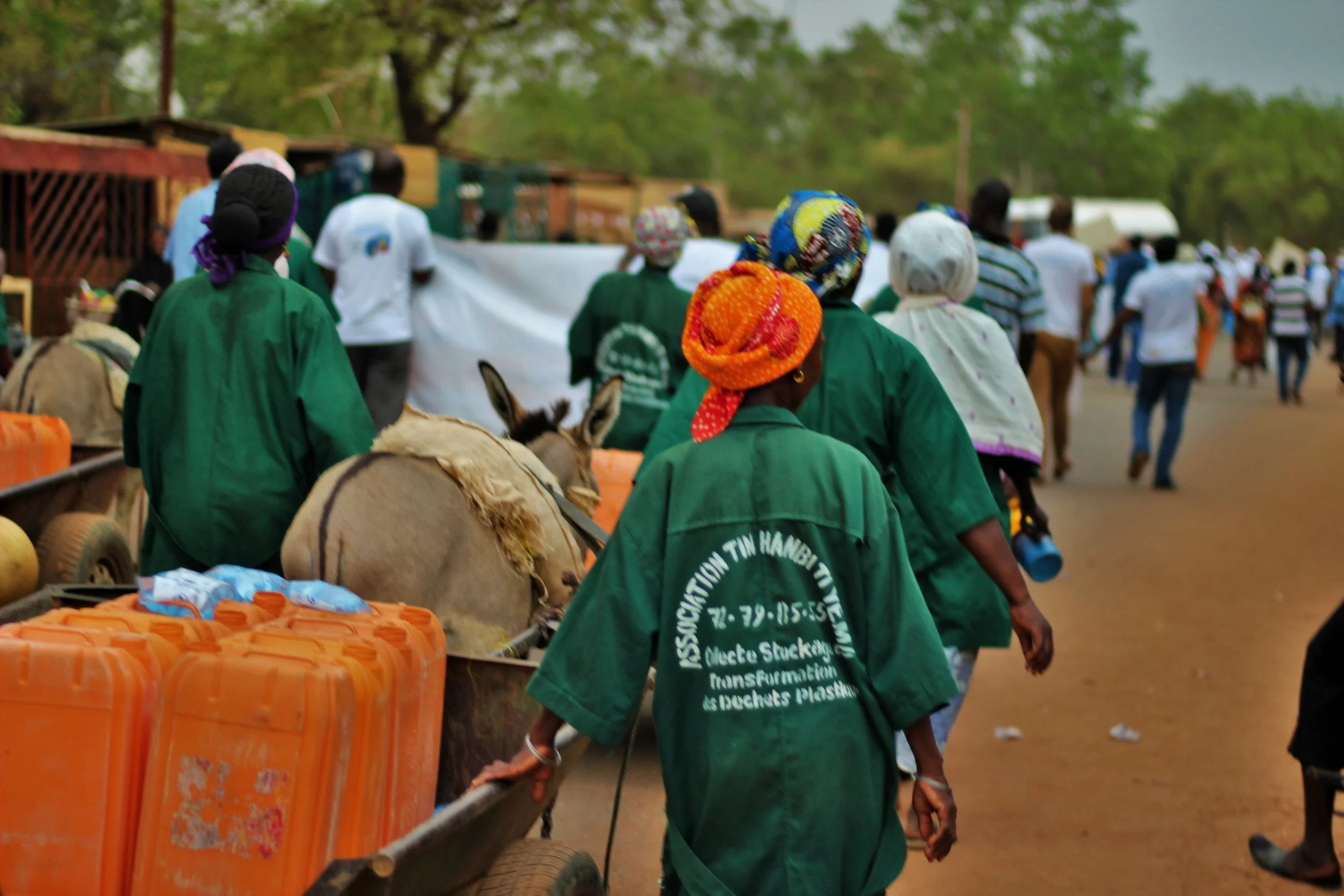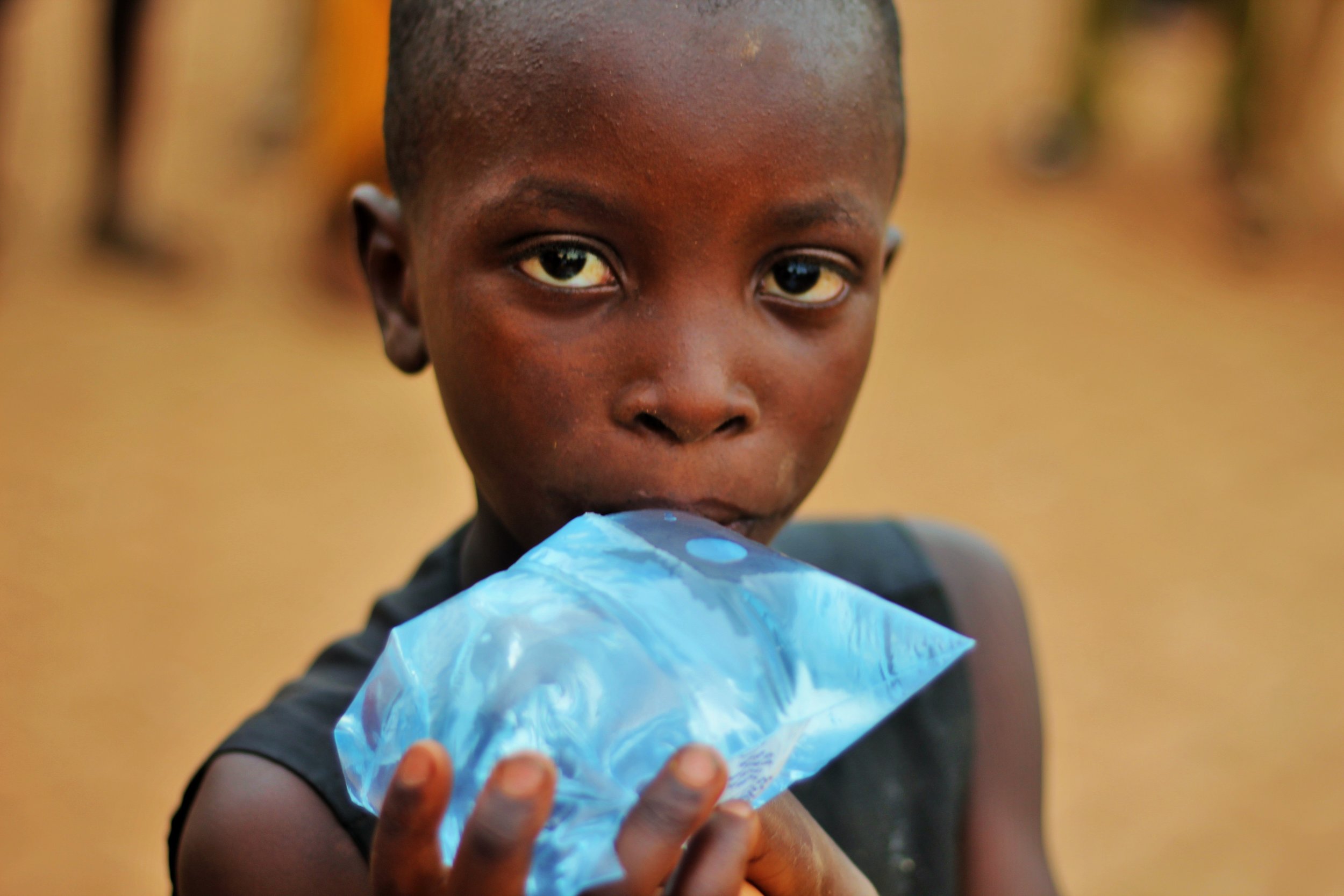By: Julia Catani and Donald Brooks
FADA N'GOURMA, BURKINA FASO - In Burkina Faso, less than 80% of the population has access to safe drinking water [1] and more than 19.4% of infant mortality is caused by unsafe water [2]. As such, water remains a major concern for the government of Burkina Faso and its civil society and private sector partners.
It has been proven that return on investments in the water, sanitation, and hygiene (WASH) sector is substantial. Estimates from the World Health Organization in 2017 demonstrate a calculated gain of 1.5% in global GDP resulting from universal access to safe water and sanitation and an economic return of $4 USD for every $1 USD spent on WASH services [3]. Investments in WASH decrease the burden of water-borne illnesses, which place strain on already weak health systems. This promotes the reduction of general healthcare expenses and the improvement of individual productivity at work and at school. WASH sector financing per capita, however, has been diminishing for the past 7 years in Burkina Faso [4], making the sector more dependent on external aid and more vulnerable to its politically-motivated fluctuations. Currently, international partners provide financing for an average of 75% of the yearly budget for the realisation of the Burkinabè National Plan for Water and Sanitation 2016-2030 [5].
Thus, as the Government of Burkina Faso invites the implication of various external entities to strengthen WASH capacity, the need for coordination and cooperation mechanisms is paramount. Already, there are many competent actors working on WASH-related issues here in Burkina Faso--government entities such as the Ministry of Water and Sanitation, the National Office for Water and Sanitation (ONEA), and the Regional Water Agencies (Agence de l’Eau); companies like Vergnet Hydro and Filtres Eau Distribution (FEDis); local and national NGOs such as the Ecologic Movement of Burkina (M.Ec.B) and TinTua; and international organizations, as in the case of Initiative: Eau, Eau-Vive Internationale, and WaterAid.
Each of these actors has an equally important role to play in fortifying the Burkinabè WASH sector. Civil society actors like NGOs, for example, can provide support to the government in the areas of their expertise and advocate on behalf of the sector to funding institutions and national and international governmental bodies for support. Public institutions can play a role in assisting in the development of these organizations and their initiatives, effectively certifying their credibility. However, it is public institutions, i.e. national, regional, and local echelons of government, that must lead efforts to provide safe and reliable WASH services to the population. It is through the responsibilization of government actors, promoting the allocation of resources derived from domestic taxation, that sustainability can be achieved in WASH sector development efforts. If well-designed, partnerships between the actors can result in mutually beneficial outcomes for all involved.
It is with this need to concentrate and coordinate actors in the Burkinabè WASH sector in mind that Initiative: Eau, the BARKA Foundation, and their partners organized and hosted the Water Fair (Foire de l’Eau), the official event for World Water Day in Burkina Faso. The event was held in Fada N’gourma, capital of the Eastern Region, from 21 March to 25 March. It was organized under the High Patronage of the First Lady of Burkina Faso, Madame Sika KABORE, under the co-Godfathership of the U.S. Ambassador to Burkina Faso, Andrew YOUNG, the Minister of Water and Sanitation, Niouga Ambroise OUEDRAOGO, and the Minister of Mines and Quarries, Oumarou IDANI, and under the Presidence of the Governor of the Eastern Region, Colonel Ousmane TRAORE.
The first day of the Fair was marked by a march to mobilize participants and the citizens of Fada around the issue of water. The parade brought together over a thousand people, ranging from professionals of the sector to students, local associations, women, and others who decided to join the movement all marching and chanting “l’eau, c’est la vie,” “kom, la vim,” and “mi ñima, n tie li miali.” -- meaning “water is life” in French, Moore, and Gourmantche, respectively.
During the next three days, the Fair opened the main city square, La Place des Martyrs, to those working in the sector to exhibit their projects and raise awareness about their work to the local population. Simultaneously, the Water Congress provided a forum for NGOs, companies, and government structures working in the field to exchange knowledge and share their experiences in water resources management, as well as to build alliances and partnerships to increase the effectiveness of collective actions. During the nights of these 5 days, La Place des Martyrs was transformed from an exhibition space into a cultural stage, featuring a plethora of performances ranging from young Fadalais showing their skills during a water-themed slam competition to popular Burkinabè musicians like afroreggae singer Sana Bob who performed live on stage.
The Water Fair also served as an opportunity to launch the International Water Fund, a funding instrument that will allow Initiative: Eau, BARKA Foundation, and their partners to finance four water projects in the Eastern Region. The launch event took the form of a Gala Dinner and featured the participation of the Minister of Mines and Quarries, Oumarou IDANI, representatives of the Ministry of Water and Sanitation, the Governor of the Eastern Region, and the Mayor of Fada N'gourma.
This Fair was not designed as an event exclusively for high-level decision-makers, as is often the case of other actor coordination efforts in Burkina Faso. It was instead designed to engage players of all-sizes and, most importantly, the population. It is important to create exchange platforms and cooperation mechanisms where everyone has a seat at the table, not just the biggest players. Furthermore, the act of decentralizing a national sectoral event out of the capital city of Ouagadougou to a regional capital allowed us to reinforce the importance of perspective in considering WASH issues and development. In addition to permitting important contributors not based in Ouagadougou to attend and contribute to the event, the Fair highlighted the oppressive WASH situation experienced around Burkina, an oppression that is not felt in Ouagadougou. This focus on inclusivity enabled the Foire de l’Eau to major become a first step towards building a sustainable and integrated WASH strategy in Burkina Faso implicating everyone who uses water.
References
[1] Ministère de l’Eau, des Amenagements hydrauliques, et de l’Assainissement. (2013). Annuaire statistique 2012 de l'eau potable et de l'assainissement des eaux usées et excreta. Retrieved 15 April 2018, from www.cns.bf/IMG/pdf/annuaire_statistique_2012-meaha-2.pdf.
[2] Ministère de la Santé. (2015). Annuaire Statistique 2014. Retrieved 15 April 2018, from http://www.cns.bf/IMG/pdf/annuaire_2014_du_ms.pdf.
[3] World Health Organization. (2018). Water sanitation hygiene: Economics. Accessed 15 April 2018, from http://www.who.int/water_sanitation_health/monitoring/economics/en/
[4] Humphreys E & Renouf R. (2017). Mapping public finance for WASH in Burkina Faso. Finance Brief 14, Public Finance for WASH. Retrieved 15 April 2018, from https://www.ircwash.org/sites/default/files/finance_brief_14_-_mapping_public_finance_for_wash_in_burkina_faso.pdf.
[5] Ministère de l’Eau et de l’Assainissement. (2016). Programme Gouvernance du secteur Eau et Assainissement du Burkina Faso, 2016-2030. Retrieved 15 April 2018, from https://www.pseau.org/outils/ouvrages/DGEA_burkina_faso_2016_2030.pdf.

